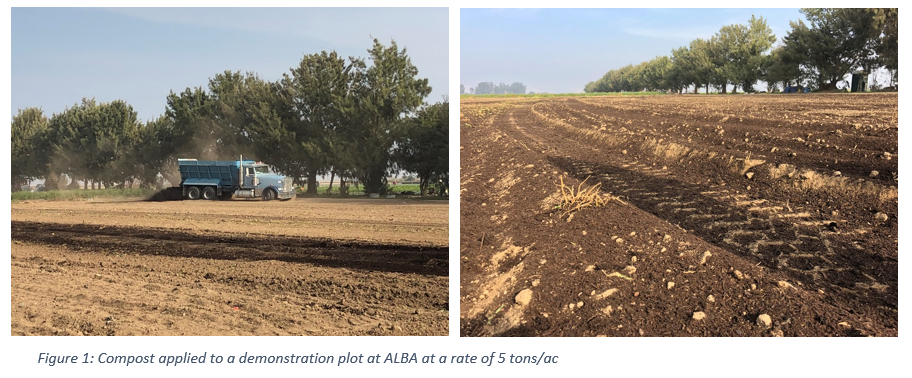On Saturday, November 17, 2018 the University of California Cooperative Extension presented a workshop alongside Monterey County Resource Conservation District and the Agriculture and Land-Based Training Association (ALBA). The Fertilizer Research and Education Program (FREP) attended this workshop along with approximately 50 other participants interested in learning about or using organic amendments in their production systems. Over the course of the day-long workshop, attendees learned about organic amendments, observed a compost application on a farm block, and had the opportunity to network with representatives from various organizations. While a variety of themes arose, the presenters and facilitators enriched the attendees understanding of organic amendments with important takeaways that participants could apply to their daily work.
Workshop Takeaways
1 What is an organic amendment?
An organic amendment is any material, of plant or animal origin, that can be added to the soil to improve its physical characteristics or increase the efficiency of nutrient and irrigation management practices. Some examples of organic amendments include, composted and raw manures, green waste and agricultural waste, biochar and cover crops. The use of compost in the Central Coast and the Central Valley is growing and most of the workshop focused on compost applications in agriculture.
2 What limitations exist for the application of organic amendments?
Central Coast grower Christian Morales commented on the limitations that exist for their farm. As organic growers, they try to incorporate both cover crops and compost applications into their management regime, but timing between crop rotations and food safety concerns creates limitations. According to the Leafy Green Marketing Agreement (LGMA), fully composted material must be applied to the soil at least 45 days prior to harvest and raw manure is not allowed. This gives growers like Morales a narrow window to get into the field to incorporate cover crops and apply compost.
3 What food safety concerns exist and how can growers minimize risks?
Many growers have a concern for the food safety aspects of organic amendments, specifically composted manures. Under improper management conditions, pathogens can be present in composted materials. Maintaining high temperatures for the appropriate amount of time can kill pathogens and produce a stable product. Testing for fecal coliforms, E. coli and Salmonella is required in addition to other standards set by the LGMA. Additional management practices that can help ensure a safe product include maintaining proper moisture levels and providing adequate turning and mixture.
4 How can growers assess compost quality?
“A good compost should smell like dirt” -Johnny Massa
According to speaker Johnny Massa of Comgro Soil Amendments Inc., growers should look for a composter who has a turning program longer than seven weeks, cures their compost for 30-45 days at a minimum moisture level of 35%, and pulls testing samples from the batches more than the required amount. To determine this information, growers can request Standard Operating Procedures and turning records from the producer.

For more information on resources and upcoming compost related events, visit the UCCE Santa Clara County Compost Education Page: http://cesantaclara.ucanr.edu/Home_Composting_Education/


